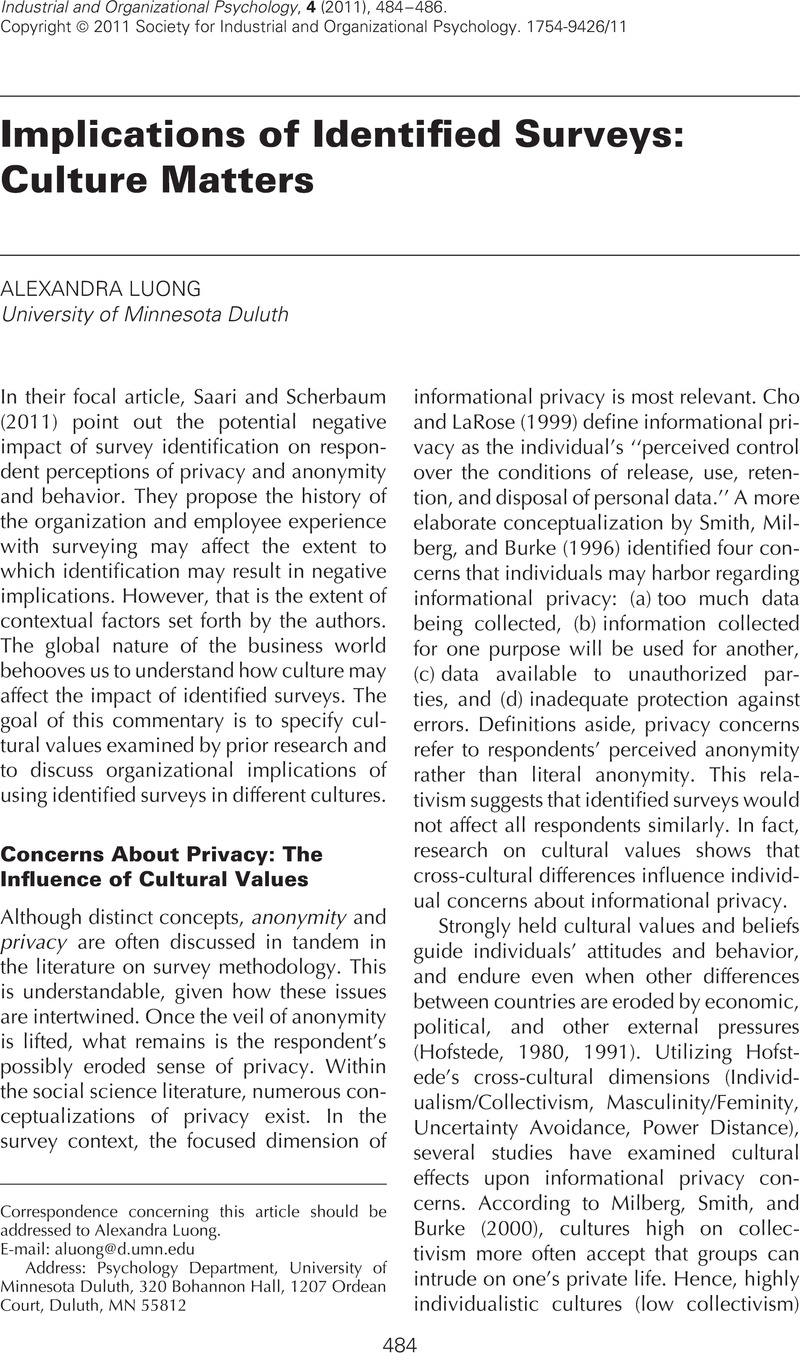Crossref Citations
This article has been cited by the following publications. This list is generated based on data provided by Crossref.
Scherbaum, Charles A.
and
Saari, Lise M.
2011.
Identified Employee Surveys: Where Do We Go From Here?.
Industrial and Organizational Psychology,
Vol. 4,
Issue. 4,
p.
487.





